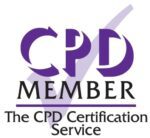You’ve probably never heard of psychologist and philosopher Svend Brinkmann, which is a shame since he is the kind of person we need right now (as we learn to set better boundaries).
His most recent book, The Joy of Missing Out, is a passionate and well-reasoned argument for cultivating a profoundly counter-cultural ideal: the art of deliberately missing out on things. The book argues that we’ve created a society dominated by endless choices, offers, and invitations to read more, consume more, enjoy more, and even become more.
To put our well-being (and overall sanity) first, we must learn to say no. What are some of the reasons we may struggle to set up boundaries for ourselves?
If you’ve got a finger in every pie and feel overstretched, you may have difficulty saying ‘no’. You probably feel resentful because you are doing too much, but you know there’s no one else to blame for this predicament. Even when you want to or know you have to, and even if you’ve given yourself the pep talk beforehand, you feel the ‘yes’ slipping through your lips!
When you say ‘yes’ to something, you are always saying ‘no’ to something else, usually yourself or those closest to you.
A ‘yes’ to attending a breakfast meeting might be a ‘no’ to your health. In fact, it means you’ll miss your morning run. Bringing forward a deadline so someone else can take an early holiday might be a ‘no’ to your family because it means you need to stay later at work each night. A ‘yes’ to a networking event might be a ‘no’ to some much-needed me-time to recharge your batteries.
Too often, we only look at half the equation, letting responsibility, guilt, obligation, fear, or conflict avoidance drive us into being too agreeable. “Yes, I can do that,” you respond, and regret follows a moment later.
The art of staying in your lane
Comparison, dear old friend. Being able to say no quickly means accepting you won’t be able to be everything for everyone, and this means not saying yes to every opportunity.
“You have to remove the mindset of busy = success. It’s simply not true.” shares business, sales consultant and Alt Marketing School teacher Chelsea Cox. “Every opportunity, client, project, PR piece that comes your way, take a moment before firing a response, think about how that opportunity will serve you, is it of financial benefit?
And if so, is it paying what you are worth? Is it beneficial from an awareness point of view? If so, how much awareness can you get in return? If you break this down and struggle to see the return for yourself, either personally or professionally, then say no. There is nothing wrong with saying no to something that doesn’t serve you.”
Strive not to compare yourself to others regarding anything—and this includes the number of social events you attend, the amount of time you can commit, or the nature of your contribution to an event.
One way to respectfully stand up for your needs is to take a time out to consider what’s best. You can say, “I’d love to think about this in cases such as this. I’ll get back to you as soon as I can.”
The art of saying NO
Though standing up for yourself doesn’t need to be scary or something to psych yourself up to do, many of us grow fearful that we’ll be perceived as rude or aggressive if we take steps to do it. “In personal life, I would say prioritise your time based on what you get out of it,” admits Chelsea Cox
Is it a friend that makes you feel real good? Or is it a friend that uses you to offload? Is it a workout class that makes you feel great, or does it make you feel rubbish after? Protect yourself and your time.
The truth is, saying NO is not always easy. It can function as essentially the most powerful word when you’re looking to manage your anxiety and stress. Next time you face a request, ask yourself: if I say yes to this, what will I say no to?
It will give you a fighting chance to decide what feels right for you. And you might find that saying ‘no’ is ok.
I bet you have many things you want to do: things you are passionate about, making you healthier and happier, the time you want to spend with family members, and priorities that will move your life in the direction you’ve dreamed of.
Be the master of your own choices
When you lease rare and precious spaces in your life out to other people’s requests, it’s like shuffling yourself to the back of the queue, deferring your dreams, delaying your priorities, and robbing yourself of the precious time you have been given to live a fullfiling life.
It’s ok to say ‘no’ without doubt or fear because a ‘no’ to something might be that desperately needed ‘yes’ to the things that deliver the achievement, meaning and contentment you deserve.
Get started with creating better boundaries
Your words help to frame your sense of empowerment and control. Furthermore, the words you use create a feedback loop in your brain that impacts your future behaviours.
For example, every time you tell yourself, “I can’t”, you’re creating a feedback loop that is a reminder of your limitations. This terminology indicates that you’re forcing yourself to do something you don’t want to do.
When you tell yourself, “I don’t”, you’re creating a feedback loop that reminds you of your control and power over the situation. It’s a phrase that can propel you to break your bad habits and follow your good ones.
Heidi Grant Halvorson, director of the Motivation Science Center at Columbia University, explains the difference between saying “I don’t” compared to “I can’t”:
“I don’t” is experienced as a choice, so it feels empowering. It’s an affirmation of your determination and willpower. “I can’t” isn’t a choice. It’s a restriction. It’s being imposed upon you. So thinking “I can’t” undermines your sense of power and personal agency.
Overall the need to set boundaries is a form of self-care and respect towards yourself. Evaluating your priorities, creating systems, and asking yourself the right questions can genuinely change how you make time for yourself.
Want more? Here's your invitation from the school ⤵️
We don’t teach you how to do more. We teach you how to do it better.
You don’t need more hacks. You need smarter foundations, better systems, and clarity that cuts through the noise.You got into this to make a difference. Let’s help you do that, with strategy and a whole lotta heart.
➡️ Find out how we can help via our all-access pass.




